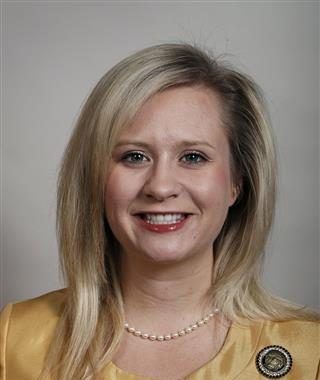We have all seen the heart-breaking new stories where a young person has suffered or even taken their own life due to depression, bullying, or other mental illness.
Many of us have been directly impacted by something of this nature. Mental illness is an issue that plagues not only Iowa families, but our communities as well.
Unfortunately, it has become all too common that a parent recognizes that their child is suffering from mental illness but struggles to find an on-ramp into the system and access treatment.
Generally, these services are provided, directed and funded by the counties and a “region” by which each county belongs. Clay, Palo Alto, Dickinson, Osceola and O’Brien are in a region called Northwest Iowa Care Connections. Pursuant to Iowa Code 331.389, local access to mental health and disability services for adults shall be provided either by counties organized into a regional service system or by an individual county.
Clearly changes need to be made from the county/region based system. The county/region run system is not working. The county/region approach is not providing adequate services or funding- and Iowans are suffering.
Enter the state.
Last year, legislators and Governor Reynolds worked across the aisle to pass a historic children’s mental health legislative package that will ensure parents have a place to turn.
House File 690 seeks to ensure that there is local access and coordination to mental health services for children, and that parents have a place to turn when seeking treatment for their child. It was developed based on recommendations from mental health providers, educators, parents, and advocates with a focus on local access and care coordination of mental health services for children. This bill, now law, was a part of many proposals in the legislature to expand access to mental health services for children.
The law creates the structural framework for a children’s mental health system with a state board for a central entity to advise Iowa’s mental health regions throughout the state. It also establishes local governance based on the existing community-based adult mental health system with the 14 Mental Health and Disability Services Regions.
Each region will have a Children’s Services Coordinator who will serve as the subject matter expert and focus solely on the development of children’s mental health services in that area. This will ensure that children are able to able to access things like crisis services, inpatient treatment, and outpatient therapy closer to home and near their families.
Importantly, the bill also follows the process used for adult mental health by establishing eligibility criteria for children and core services that will be provided to eligible children including crisis services, inpatient treatment, and outpatient therapy.
But there is another big piece to this puzzle: the funding.
The Legislature provided significant state investment to eliminate a waiting list of about 1,000 kids to access the Children’s Mental Health Home and Community Based Services Waiver. This funding will allow these children and their families to immediately receive much-needed services close to home.
We appropriated funding to a statewide 24-hour crisis hotline for all ages as well as new psychiatric residencies to bring providers to rural communities. We invested $1.2 million to provide mental health awareness training for educators and schools and $750,000 to develop additional ways for schools to meet mental health needs and strengthen community supports for students.
This legislation is not the end of the discussion. Do we continue to work off a broken model and rely on counties and regions to continue to underfund and underdeliver services? Or should we move to one central system, with consistent services and dedicated funding?
Parents should always have a place to turn when seeking treatment for their child. This legislation was a large step forward in ensuring that for all children in Iowa. But there is more work to do and I look forward to addressing this bipartisan priority in the years to come.












